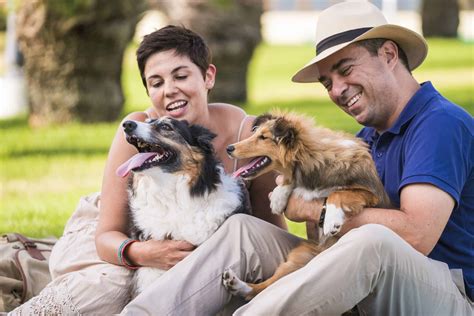Introduction

Pets have become an integral part of our lives, providing companionship, love, and fun. However, proper socialization is crucial for ensuring their well-being and happiness. This article explores the immense importance of pet socialization and its profound impact on their physical, mental, and emotional development.
Understanding Pet Socialization
Pet socialization involves exposing animals to a wide range of people, places, and experiences during their early developmental stages. This process helps them become comfortable and confident in different environments, reducing anxiety and aggression.
Benefits of Pet Socialization
- Reduced Fear and Anxiety: Socialized pets are less likely to be fearful or aggressive in new situations, promoting a calmer and more relaxed demeanor.
- Improved Behavior: Socialization teaches pets appropriate behaviors, such as leash walking, greeting strangers, and interacting with other animals.
- Enhanced Well-being: Socialized pets are more likely to live longer, healthier lives as they are less likely to develop stress-related illnesses.
- Stronger Bond with Owners: Socialization helps pets form strong attachments with their owners, leading to a more fulfilling and rewarding relationship.
Importance of Early Socialization
The optimal socialization period for pets is during their puppyhood or kittenhood, between 3 and 16 weeks of age. During this time, their brains are highly receptive to learning and forming associations. Early socialization helps shape their personality and set the foundation for a well-adjusted life.
Strategies for Pet Socialization
Effective pet socialization requires a consistent and positive approach. Here are some strategies to help you socialize your furry friend:
- Expose them to different people: Introduce your pet to friends, family, neighbors, and children of varying ages and temperaments.
- Take them on regular walks: Exploring different environments and meeting other people and animals is an excellent way to socialize pets.
- Enroll them in socialization classes: These classes provide structured environments where pets can interact with others under the guidance of a professional trainer.
- Use positive reinforcement: Reward your pet for calm and appropriate behavior during socialization sessions.
Impact of Poor Socialization
Unsocialized pets are more likely to develop behavioral problems, such as fearfulness, aggression, and separation anxiety. They may also have difficulty adjusting to new situations and interacting with others.
Case Studies
- A study published in the “Journal of the American Veterinary Medical Association” found that socialized dogs were less likely to bite than unsocialized dogs.
- Another study, conducted by the University of California, Davis, showed that socialized cats were more likely to interact positively with new people and animals.
Conclusion
Pet socialization is paramount for their physical, mental, and emotional well-being. By exposing our furry companions to a variety of people, places, and experiences, we can help them become well-rounded, happy, and healthy members of society. Embrace the importance of pet socialization and invest in the long-term happiness of your beloved animal. Remember, a well-socialized pet is a confident, content, and irreplaceable companion.





















